
An O1 visa is available for those individuals who have extraordinary ability and have demonstrated excellence in their field. Individuals who qualify for O1 visas can come to the United States with their spouses and children. Spouses and children are issued O3 visas. Eligibility For O3 Visa In order to qualify for an O3 visa, one must prove that they are the spouse of an O1 visa holder and must provide sufficient evidence to prove this fact. In addition, you must not be inadmissible based on your criminal history or on health grounds. There are two filing options available for an O3 visa based on whether you are in the United States or in another country. Application Process If you are already in the United States, you can file your O3 petition along with your spouse’s O1 visa petition. The petition will be filed by the employer sponsoring your spouse’s petition. If you are already on a valid independent nonimmigrant status, you can file to…Read More

In some visa and green card applications, an in-person interview with a USCIS adjudicator is a required step in the process. An applicant is allowed to bring an attorney to this interview. A frequent question that is asked by applicants is whether or not they should bring an attorney to their immigration interview. There are some important reasons why it might be a wise idea to bring an attorney. Help Explaining Facts And Making Legal Arguments There may be times during the interview when a question by the adjudicator or an answer by the applicant requires some clarification. An attorney can help make sure that everyone understands each other and is on the same page. In addition, if a case has a factual or legal issue, the attorney can help explain the facts and make the legal arguments required to clarify the situation on behalf of the applicant. Avoid Disaster Sometimes an adjudicator comes into an interview already determined to deny the application. They may…Read More
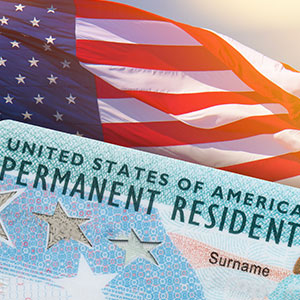
An O-1 visa is available to foreign nationals who possess extraordinary ability in sciences, education, business, or athletics or who have demonstrated extraordinary achievement in the motion picture or television industry or the arts. A green card is available for individuals with the same achievements to obtain permanent residence in the United States. However, the evidentiary requirements to establish “extraordinary ability” for an O-1 visa are different from those required for an EB1-A green card. Some people with an O-1 visa may reach a level in their careers where they can qualify for an EB1-A green card. In those instances, they may decide to “upgrade” to a green card based on their eligibility. EB1-A green cards are reserved for a small percentage of individuals at the very top of their fields. Additional Qualifications The evidence used to demonstrate “extraordinary ability” in an EB1-A green card application is similar to what is used for an O-1 visa application. However, there are some differences. USCIS evaluates green…Read More

Compared to most nonimmigrant visas, working on an O-1 visa is fairly flexible. However, there are some work restrictions attached to this type of visa, and it is important to understand these restrictions. Sponsorship Of An O-1 Visa Many people assume that similar to an EB-1 green card, they can sponsor their own O-1 visa application because both types of applications are based on extraordinary abilities. However, the law states that an O-1 visa application must be sponsored by an employer or an O-1 visa agent. An O-1 visa agent is someone who professionally represents you and your employer. There are a few exceptions to this requirement. Changing Employers Holders of O-1 visas may change employers or work for multiple employers. However, there are some restrictions on this practice. If you wish to change employers, your new employer must submit a new I-129 to the USCIS. If your O-1 petition was submitted by an agent, then an amended petition with evidence from your new employer…Read More
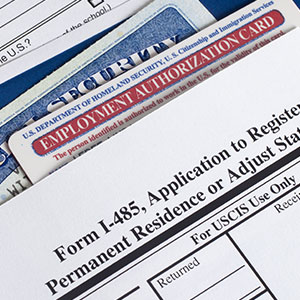
In a recently released Unified Agenda for the Department of Homeland Security, the Trump administration proposed forthcoming rules. These new immigration regulations, if enacted, could have a profound effect on H1-B and L-1 visa holders. H1-B Visas Under more restrictive Trump administration policies, the denial rates for H1-B visas have increased significantly. According to an analysis by the National Foundation for American Policy, the denial rates have gone from 6% to 24% in the last four years. Further regulations could lead to increased denials and become a burden on employers and highly skilled foreign workers. The proposed H1-B rule would revise the definitions of specialty occupation, employment, and employer-employee relationship. DHS also plans to propose additional requirements that would affect the wages paid to H1-B visa holders. It is believed that the Trump administration is looking towards pushing the boundaries and making long-term structural changes to H1-B visas. A new regulation that would revise the definition of employment and employer-employee relationship could affect employers who place workers at client…Read More
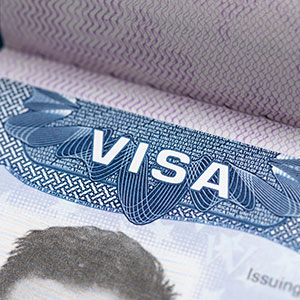
Premium Processing Service provides expedited processing for certain employment-based petitions and applications. When you use Premium Processing Service, the USCIS will issue a decision on your petition or application within 15 calendar days, or your fees are returned. The 15 days begin when the USCIS receives the relevant petition or application along with Request for Premium Processing Form. You file for premium processing if you are applying for the following visas: E-1 or E-2 Treaty Investor H1-B. H2-B, and H3 employee L-1 intracompany transferee O-1 and O-2 individuals with extraordinary ability P athletes or entertainers TN NAFTA professionals The fee for Premium Processing Service is $1,410 and cannot be waived. You can file your request for Premium Processing Service with your original petition or request it later once you decide to expedite the process. It should be noted that while a petition is guaranteed to be processed within 15 calendar days, it does not necessarily mean the petition will be approved or denied within 15…Read More
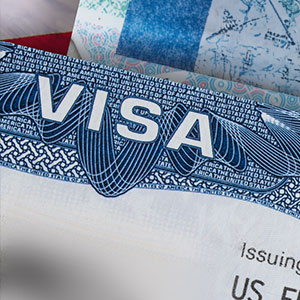
In recent years athletes from around the world have come to the United States to participate in eSports tournaments. This came after a 2013 decision when USCIS approved its first P-1 visa for an eSports athlete to participate in a U.S. competition. This demonstrated that USCIS was no longer resistant to considering an eSports gamer an athlete and opened the door to thousands of other eSports athletes. This has helped to broaden the U.S.’s impact on the eSports market. P-1A Visas For eSports Athletes P-1A visas are available to internationally recognized athletes and teams that are coming to the United States to participate in a specific competition. P-1A visas require a high level of achievement in your field. Applicants for P-1A visas mist show that they have a degree of skill and recognition that goes substantially beyond the ordinary. This can be demonstrated by showing renowned achievements and that you are well known in multiple countries. Each individual application will be evaluated on its own…Read More

Expedited removal is a process that allows immigration officers (including lower-level immigration officers) to deport select noncitizens immediately upon encountering them. It generally occurs at Ports of Entry, but you could be subject to expedited removal elsewhere if you are undocumented, it has been two weeks or less since you entered the United States, and you are within 100 miles of the border. You could also be subjected to expedited removal if you are undocumented and have been in the United States for less than two years if you have committed fraud or misrepresented yourself as a U.S. citizen. As its name suggests, expedited removal happens quickly. Sometimes it is over within hours. If you are subject to expedited removal, you will be detained until you are removed. You will not be given any due-process protections like the chance to hire an attorney or make your case in court. After being deported through expedited removal, you’ll be barred from reentering the United States for a period of…Read More
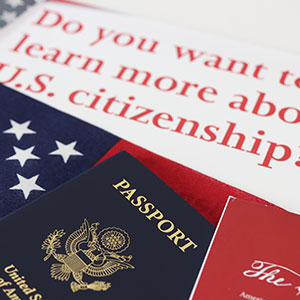
A P visa is a temporary work visa that allows outstanding athletes, athletic teams, and entertainment companies, to work in the United States temporarily. P visas are also available for essential support personnel and spouses and dependent children. The length of the P visa depends on the classification and can be extended in some circumstances. P-1 Visas For Athletes And Group Entertainers These visas are available for internationally recognized athletes or individuals who perform as part of a recognized entertainment group. P-1 visas may be granted for up to five years and can be extended once every five years up to 10 years. In order for an athlete to qualify, the person or team must be internationally recognized. This means they have a high level of achievement and possess skill and recognition beyond the normal level for that activity. They must also be recognized in more than one country. This can be demonstrated by showing a contract with a team, league, or international event. There…Read More
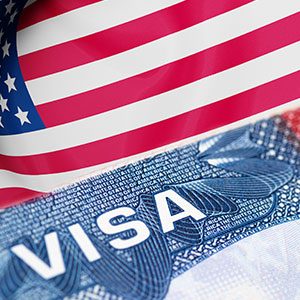
An L-1 visa is a visa that allows for the temporary transfer of a foreign worker that is an executive, manager, or falls into the specialized knowledge category, to the United States to continue working for the same employer or its parent, branch, subsidiary, or affiliate. It is a nonimmigrant visa. There are two types of L-1 procedures: L-1 Individual Visa—allows for the transfer of a single individual. L-1 Blanket Visa—allows for the transfer of multiple employees together An L-1 blanket visa petition is an option that allows a company to transfer many employees to the Unites States quickly and on short notice. Often large, multinational corporations will file a blanket L-1 visa petition in order to obtain L-1 visas for their employees that are transferring to offices in the United States. Using an L-1 blanket petition, a company can file a single petitioner, and the company may be qualified to transfer a certain number of executives and managers to the U.S. on L-1 visas.…Read More